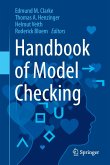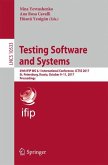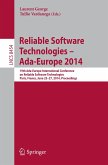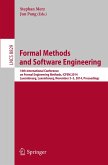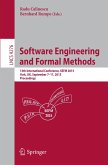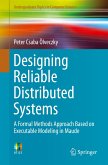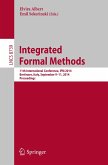This invaluable textbook/reference provides an easy-to-read guide to the fundamentals of formal methods, highlighting the rich applications of formal methods across a diverse range of areas of computing.
Topics and features: introduces the key concepts in software engineering, software reliability and dependability, formal methods, and discrete mathematics; presents a short history of logic, from Aristotle's syllogistic logic and the logic of the Stoics, through Boole's symbolic logic, to Frege's work on predicate logic; covers propositional and predicate logic, as well as more advanced topics such as fuzzy logic, temporal logic, intuitionistic logic, undefined values, and the applications of logic to AI; examines the Z specification language, the Vienna Development Method (VDM) and Irish School of VDM, and the unified modelling language (UML); discusses Dijkstra's calculus of weakest preconditions, Hoare's axiomatic semantics of programming languages, and the classical approachof Parnas and his tabular expressions; provides coverage of automata theory, probability and statistics, model checking, and the nature of proof and theorem proving; reviews a selection of tools available to support the formal methodist, and considers the transfer of formal methods to industry; includes review questions and highlights key topics in every chapter, and supplies a helpful glossary at the end of the book.
This stimulating guide provides a broad and accessible overview of formal methods for students of computer science and mathematics curious as to how formal methods are applied to the field of computing.
Topics and features: introduces the key concepts in software engineering, software reliability and dependability, formal methods, and discrete mathematics; presents a short history of logic, from Aristotle's syllogistic logic and the logic of the Stoics, through Boole's symbolic logic, to Frege's work on predicate logic; covers propositional and predicate logic, as well as more advanced topics such as fuzzy logic, temporal logic, intuitionistic logic, undefined values, and the applications of logic to AI; examines the Z specification language, the Vienna Development Method (VDM) and Irish School of VDM, and the unified modelling language (UML); discusses Dijkstra's calculus of weakest preconditions, Hoare's axiomatic semantics of programming languages, and the classical approachof Parnas and his tabular expressions; provides coverage of automata theory, probability and statistics, model checking, and the nature of proof and theorem proving; reviews a selection of tools available to support the formal methodist, and considers the transfer of formal methods to industry; includes review questions and highlights key topics in every chapter, and supplies a helpful glossary at the end of the book.
This stimulating guide provides a broad and accessible overview of formal methods for students of computer science and mathematics curious as to how formal methods are applied to the field of computing.


